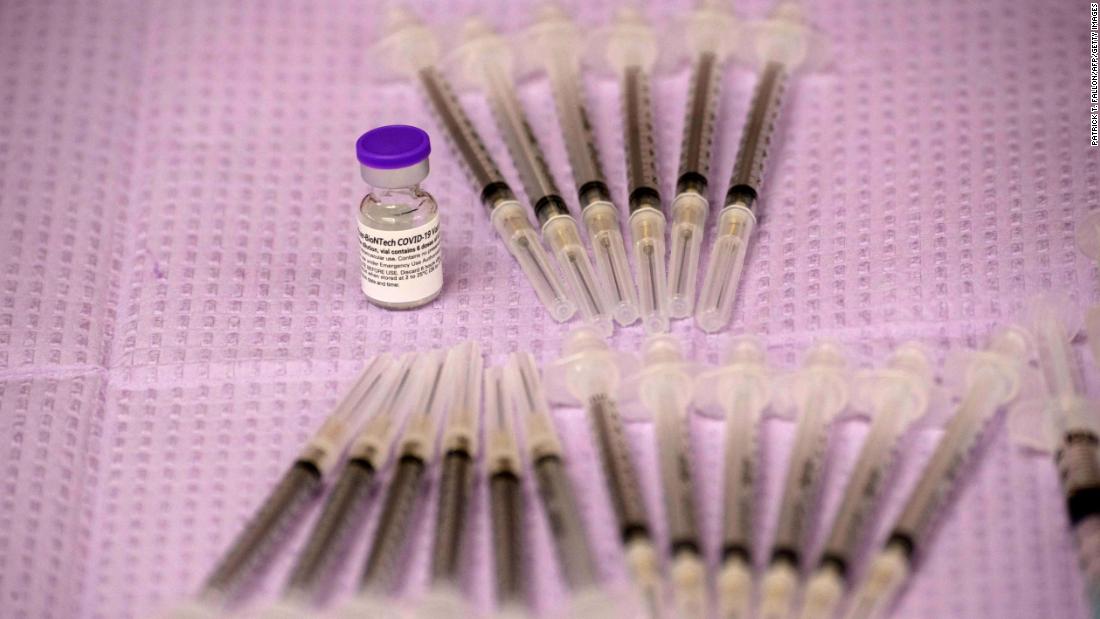What worries about the delta variant, according to a specialist 0:39
(CNN) -
The US Centers for Disease Control and Prevention (CDC) now considers the delta variant of the new coronavirus, also known as B.1.617.2, a "worrying variant."
The variant of concern designation is given to strains of the virus that scientists believe are more transmissible or may cause more serious illness.
Vaccines, treatments, and tests that detect the virus may also be less effective against a worrisome variant.
Previously, the CDC had considered the delta variant to be a variant of interest.
The CDC said that the delta variant, which was first identified in India, shows increased transmissibility, a possible reduction in neutralization by some monoclonal antibody treatments under emergency clearance, and a possible reduction in neutralization of sera after of vaccination in laboratory tests.
What we know about the delta variant of covid-19 that was first found in India and why it is so dangerous
The World Health Organization classified the delta variant as a variant of concern on May 10.
Covid-19 cases have been declining in recent months in the United States, but there are concerns that it could change as the pace of vaccines slows and the delta variant spreads.
The CDC estimates that it represented 9.9% of cases in the US as of June 5.
At a covid-19 briefing at the White House last week, the director of the National Institute of Allergy and Infectious Diseases, Dr. Anthony Fauci, encouraged everyone to get vaccinated against covid-19, noting that the delta variant was in circulation in the United States at a rate similar to the inflection point observed in the United Kingdom, where the variant is now dominant.
advertising
"We cannot allow that to happen in the United States," Fauci said, calling the UK experience "such a powerful argument" for getting vaccinated.
The variant is believed to be responsible for the most recent increase in cases in the UK and a Scottish case study published Monday found it was associated with roughly twice the risk of hospitalization compared to the alpha variant, B.1.1. 7, which was first identified in the UK.
The UK announced on Monday that the easing of coronavirus restrictions would be delayed for another four weeks, until July 19, following an increase in cases and, in particular, the growing spread of the delta variant.
ANALYSIS |
Boris Johnson Extends Long-Term Pandemic Restrictions In UK As Delta Variant Slows Vaccine Deployment
Delta variant in the United States
As of Sunday, the delta variant was responsible for about 10.3% of COVID-19 cases in the US, according to Dr. Eric Topol, founder and director of the Scripps Research Translational Institute, whose outbreak.info has been tracking variants throughout the pandemic.
It may not sound like much, but the speed with which it spreads is a concern.
"It doubles every seven to 10 days, which means that when it hits three weeks from now, this variant will be dominant," Topol said.
"That means we have two to three weeks to get to work on vaccination to stop this trend."
In general, vaccines seem to keep the variants under control.
The alpha strain, for example, is the dominant strain in the United States and has been since late April.
But with exceptions like Michigan, it didn't cause sudden spikes in cases in most parts of the country.
Topol said the United States was able to "raise the stakes" and go "full blast on vaccination" when the variant arrived in the United States.
With the delta variant, Topol is not so optimistic.
"By far this is the most worrying variant, because it is another 60% more contagious than alpha, so it is a super-spreading strain," Topol said.
But the vaccination rate is stagnating.
While 43.9% in the US are fully vaccinated, according to the CDC, the rate at which people get vaccinated has slowed.
In Mississippi, almost 29% of the population is fully vaccinated.
In Alabama it is less than 31%.
In Arkansas, less than 33%.
In Louisiana, Georgia and Wyoming it is less than 34%, according to CDC data.
Efforts to vaccinate the US may continue for years as COVID-19 variants circulate the world, says expert
Vaccines and the delta variant
The good news is that people who are fully vaccinated appear to have strong protection against the delta variant.
A study published in
The Lancet
found that a single dose of the covid-19 vaccine was not enough, but after the second dose, Pfizer / BioNTech provided 79% protection against the delta variant.
That compares to 92% protection against the alpha variant.
Another analysis from England's public health agency found that two doses of Pfizer's vaccine appeared to be 96% effective against hospitalization.
Dr. Peter Hotez, director of the Center for Vaccine Development at Texas Children's Hospital, said Tuesday on CNN's "New Day" that he is "extremely concerned" about the delta variant, although it appears that two doses of the covid vaccines -19 from Pfizer or Moderna work "very well" to protect against it.
Now is "the turning point," Hotez said, recalling the surge in coronavirus cases across the South last year, when a "horrible" wave of cases emerged in July and August.
"I have to believe that, with this new delta variant, the same thing is going to happen again with anyone who is not vaccinated or who has only one dose of vaccine," he said.
"And this is the time for everyone to get vaccinated, because even if you want to vaccinate yourself or your teenager tomorrow, it will still take five to six weeks to get both doses of the vaccine and then another week later."
CNN's Naomi Thomas contributed to this report.
Covid-19

